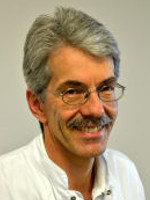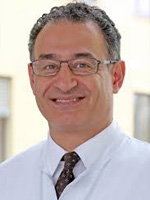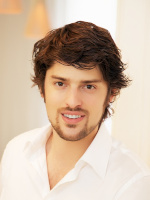Blackheads, pimples and nodular skin lesions characterize the acne, which is particularly evident in puberty. With external and internal medications can treat the common disease, of which there are different forms, usually successful.
Acne is a skin disorder characterized by blackheads (comedones), pimples, papules, and purulent pustules. Experts estimate that about 85 percent of all Germans have had such complaints during their lifetime. This makes acne one of the most common skin diseases.
The disease occurs mainly in adolescents from the age of eleven, due to the hormonal changes during puberty. Boys are more common and often more affected by this common acne or acne vulgaris than girls. Most of the symptoms disappear again until the beginning of the third decade of life.
However, in about ten percent of patients, the disease persists beyond its 25th birthday. According to some researches, this type of late life even affects 20 to 40 percent of those affected. The fact that there are acne in old age as well as in babies and toddlers, shows how differently the disease can manifest and get lost.
What Causes Acne?
Acne can be caused by various causes. For most sufferers, the skin problems are triggered by hormonal changes - especially during puberty. In this phase of life, both boys and girls increasingly form androgens. These male sex hormones favor the development of acne.
The lesions typical of the disease start from the sebaceous glands, which are located everywhere in the skin and for the most part open into hair follicles that surround the hair root. They make a fatty secretion known as sebum, which protects the skin and keeps it supple. The increased androgen production leads to an overfunction of the sebaceous glands. At the same time, the formation of horny material is stimulated in the gland ducts, which clogs them. Since the sebum can then no longer flow to the outside, initially formed with a sebum-horn mixture filled blackheads.
This has the consequence that a germ called Propionibacterium acnes there finds improved growth conditions and therefore can multiply well. The bacteria belonging to the natural skin inhabitants then cause an inflammation, which becomes noticeable by pimples, pustules and papules.
However, not all adolescents get the disease. And even adults 30 or older can develop acne. This shows that in addition to the hormonal changes in puberty, there must be other factors that cause or exacerbate the skin disease.
These include:
- Certain medications such as cortisone preparations, psychotropic drugs, androgen-containing substances (anabolic steroids), vitamin B supplements or anti-epileptic drugs
- Care and cosmetic products, in particular with ingredients which promote blockage of the sebaceous glands
- Stress and other mental stress
- Smoke
- Obesity - is especially a risk factor for Acne inversa
- Mechanical stimuli, for example due to too tight clothing or the chin strap of bicycle and motorcycle helmets
- Nutrition - especially high-glycemic foods that cause blood sugar levels to rise (chocolate, chips, sweet baked goods, soft drinks, honey), but also a high consumption of milk and dairy products worsen the condition of the skin of some affected people. However, the relationship between diet and acne is not scientifically proven
- Genetic predisposition - if one or both parents have or had acne, the risk of disease increases in their children
- Climatic influences - such as a hot and humid climate
Even in pregnancy, it may happen that the skin of the woman deteriorates, which is sometimes referred to as pregnancy acne. That acne is released through the pill, only rarely happens. In fact, many anti-baby pills even have a positive effect on impure skin, blackheads or pimples and are therefore used in patients who want to prevent the pill anyway, for the treatment of acne.
Forms of Acne
Depending on the causes, nature and severity of the lesions, doctors differentiate between different forms of acne. By far the most common is the common acne or acne vulgaris, which in most cases becomes apparent for the first time in puberty. Depending on the severity of the symptoms, they are subdivided into the following three or four types of acne.
Acne comedonica
Acne comedonica is the lightest form of acne vulgaris. Their hallmarks are blackheads, which are not or hardly ignited. They are found mainly in the face and especially in the lateral nasal area, as well as on the chin and on the forehead.
Acne papulopustulosa
In addition to blackheads, patients with this moderate acne form have inflamed pustules, slightly larger papules, and nodules as large as ten millimeters. All these lesions can hurt when touched. In addition to the face of the acne papulopustulosa may also be affected back, chest and upper arms.
Acne conglobata
Men are the most severe form of common acne. Centigrade-sized inflamed and painful lumps are formed here, which merge with each other via aisles or encapsulate as purulent bumps (abscesses) penetrating deep into the skin. Although the lesions are healed, acne ciglobata often retains the characteristic acne scars.
Acne fulminans
This very rare and severe form of acne occurs almost exclusively in boys and young men. This leads to the death of infected skin regions (necroses), which may be accompanied by symptoms such as fever, general malaise, joint inflammation and swollen lymph nodes.
Other forms of acne
In addition to the different variants of acne vulgaris, there are a number of other acne types. These include, for example:
- Acne inversa - here the symptoms are mainly in the area of large skin folds such as underarms, groin, female breasts and the genital and anal region to light. This form of acne, which often leads to the formation of painful abscesses, can be very stressful, especially for those who are severely affected.
- Acne cosmetica - due to care and beauty products
- Acne medicamentosa - here are medications triggers
- Acne venenata - triggered by the mostly professional handling of chemicals such as chlorine, oils or tar
- Acne tarda - if acne persists beyond the age of 25 or begins in adults, doctors speak of acne tarda
- Acne neonatorum - occurs in newborns and usually heals within weeks of delivery. The cause is male sex hormones of the mother, which have passed to the unborn child during pregnancy
- Acne infantum - this form also called "infant acne" occurs in babies and toddlers after the third month of life
What Symptoms Causes Acne?
Blackheads (comedones), small thickening of the skin (papules), pus-filled pustules, inflamed nodules and lumps, as well as a generally oily skin are the typical symptoms of acne. It is mainly produced in regions where there are many sebaceous glands: In addition to the face with forehead, cheeks, chin and nose, this includes the neck, the back and above all the shoulders, upper arms and chest (décolleté).
Depending on how pronounced the symptoms are and which areas of the body they affect, the inflammatory changes can also cause pain. Not to be underestimated is also that the visible skin symptoms in acne represent a psychological burden that affects the self-confidence of those affected and their quality of life.
Therapy: How Is Acne Treated?
An ordinary acne usually heals by itself. This is especially true when the disease begins at puberty. With early, professional treatment by the dermatologist, however, can prevent the acne takes a difficult course, persists even in adulthood and leaves - for the patients crucial - scars.
In any case, the disease requires patience. Even with optimal therapy, it can take a long time to get rid of acne. Even if a quick cure does not occur, it is important that those affected do not stop the treatment prematurely or change it on their own.
To combat acne, there are various medications and treatment options that can be used alone or combined with each other. Whether a therapy is necessary and if so, which, depends on which disease form is present, how severe the acne is pronounced and how fast it progresses. An important role is also played by the question of whether patients feel impaired by the skin symptoms in their mental well-being and their quality of life, which is especially the case with acne on the face.
Taking into account all these factors, the dermatologist creates an individual treatment plan for each person affected and prescribes the appropriate active ingredients. Basically, a distinction is made between the external local (topical) therapy and the so-called systemic treatment, in which the patients receive the medication as a tablet, syringe or infusion.
Medication for the external treatment of acne
For mild to moderate acne creams, gels, lotions or solutions, which the patient applies to the affected skin areas and surrounding areas. Whichever medication is most suitable will depend on whether excessive sebum production, constipation obstruction, or bacterial inflammation are at the forefront. Suitable agents for the external treatment of acne are:
- Benzoyl peroxide (BPO) - slows down the inflammatory process and kills the bacteria
- Azelaic acid - also antibacterial and anti-inflammatory. In addition, it reduces the increased keratinization of the sebaceous gland ducts, dissolves blackheads and prevents their formation
- Retinoids - have similar effects as azelaic acid and also reduce sebum production. Retinodes such as isotretinone or adapalene are well suited for long-term therapy. Caution: Since they can harm the unborn child, these agents must not be used externally or systemically for acne during pregnancy
- Antibiotics - fight the Propionibacterium acne and thus the inflammation. In order to prevent the development of antibiotic-resistant bacteria on the skin, these agents may only be used in combination with other topical acne remedies and only for a few weeks
Medication for the systemic treatment of acne
If topical (external) treatment is insufficient or if a more severe form of illness such as acne conglobata is present, therapy with tablets may be necessary. The drugs of choice for such internal treatment are antibiotics, which are usually combined with topical therapy. If the acne does not respond, dermatologists recommend a systemic treatment with the retinoid isotretionin.
An alternative for women are hormone preparations that counteract the male sex hormones. Many anti-baby pills have this anti-androgenic effect and can therefore be used for systemic treatment - especially in adult women and usually in combination with an external therapy.
Since 2015, there is a new drug for the systemic treatment of acne inversa. The antibody adalimumab blocks the messenger TNF-alpha and thus slows the inflammatory process in the skin. The drug is approved for the treatment of moderate to severe acne inversa, which is inadequate for other therapies.
Other treatment options for acne
Exposure to blue light has been successfully used by dermatologists for the treatment of mild to moderate acne papulopustulosa for several years. Laser therapy may be helpful in inflammatory acne and post-treatment of scars and lesions, but is not recommended because the final evaluation of the method is lacking. The same applies to the UV therapy.
Home remedies for acne
Healing earth, chamomile steam baths, honey, tea tree oil - there is a whole range of home remedies that help to heal or alleviate acne. What they all have in common is that scientific evidence of their effectiveness is missing so far. If acne patients want to take one or the other home remedy, they should discuss this with their doctor for safety's sake.
Skin care for acne
It is generally advisable to clean the acne-affected areas of the skin with mild, perfume-free soaps and washing lotions. Excessive washing with aggressive products will affect the natural environment of the skin and may cause the acne to worsen. Fats and oils additionally block the outflows of the sebaceous glands. Therefore, sufferers should use water-based moisturizers as well as non-greasy sunscreens and cosmetics.
Acne and nutrition
Whether there is a connection between acne and nutrition has not been scientifically proven. However, not a few sufferers have the impression that certain foods worsen their skin condition. This applies in particular to chocolate, honey, jam and other sweet foods, but also to milk and dairy products, meat and sausages. Then it is recommended to adjust the diet accordingly.
How Is Acne Going?
The majority of sufferers only suffer from a mild acne, which usually disappears after some time by itself and without leaving scars. A more pronounced acne vulgaris also often heals by itself until the age of 25, but can persist even longer. In about 40 percent of those affected the symptoms are so pronounced and stressful that it requires treatment by the dermatologist. Although this may take some time, with the right therapy in most cases, the acne can be cured or at least significantly alleviated.








 Loading ...
Loading ...


